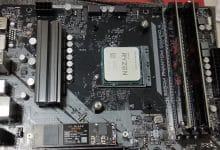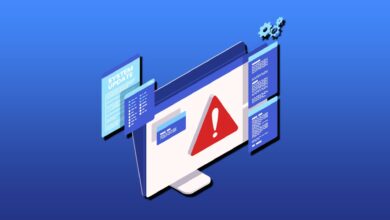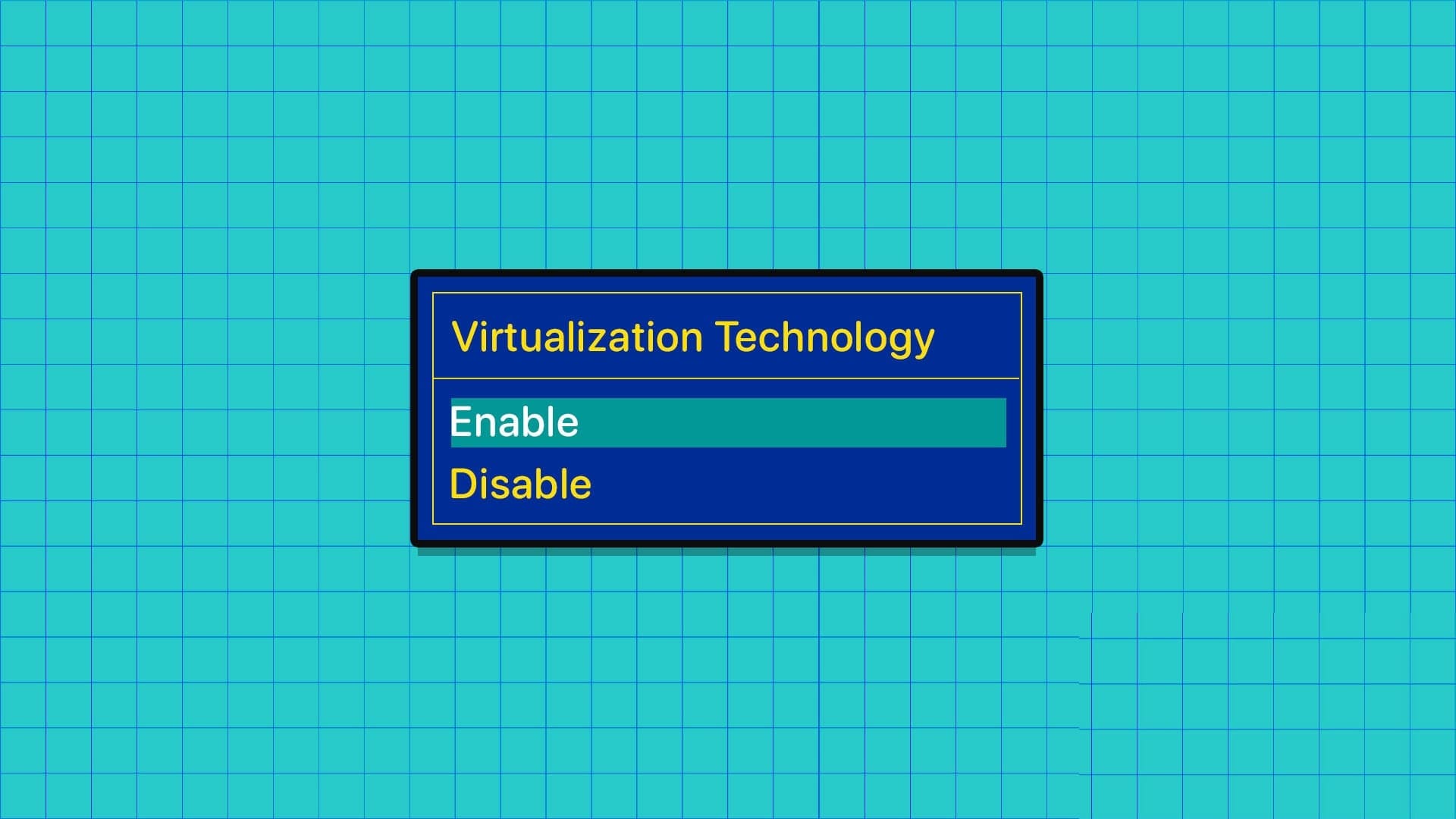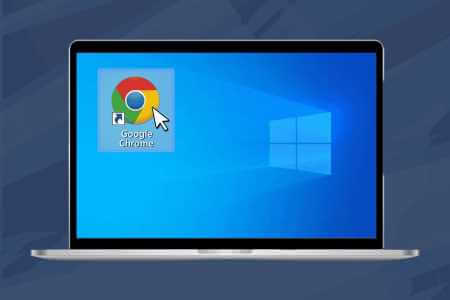Windows services are programs that run in the background and perform various tasks, such as managing hardware devices, providing network connectivity, updating software, and more. They are essential for the smooth functioning of your system, but sometimes, they can cause problems or become unnecessary. In this article, we'll show you four ways to remove a service from your Windows system.

A service in Windows is a type of application that runs without a user interface and can start automatically when the system boots up. It provides essential functionality and security for your system, such as a firewall, antivirus, backup, and more. With this understanding, let's move on to more details and begin this article.
You must remove services in Windows.
Services are essential to the Windows operating system. However, not all services are useful or required for your system. Some third-party programs may install services you don't need or use, and some may be harmful or unwanted. In these cases, you may want to remove a service from Windows to free up resources, improve performance, enhance security, or resolve issues.
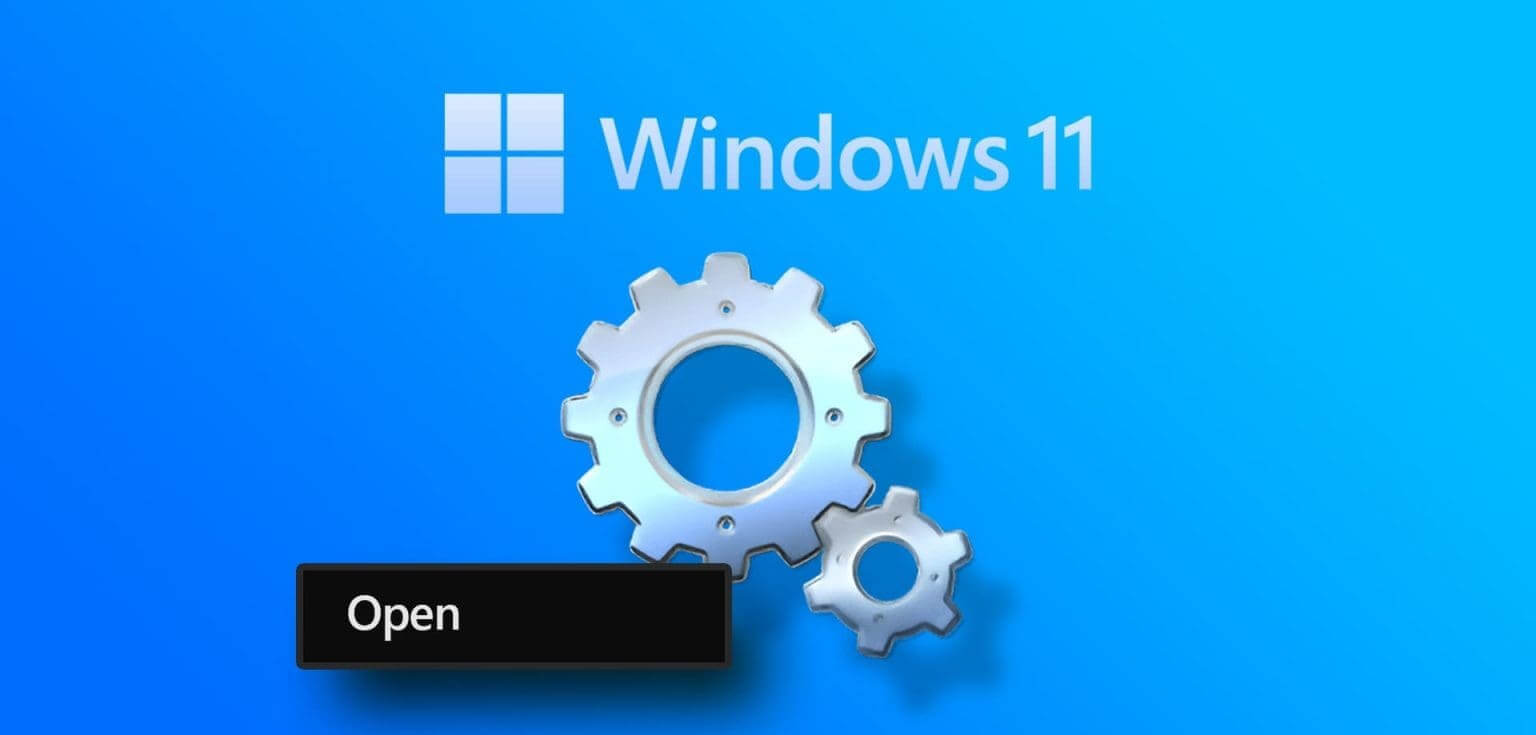
Before removing any service, you should consider the following factors:
- Make sure you have a backup of your system and a way to restore the service if necessary. You can use System Restore feature In Windows, create restore points and undo changes that might have caused problems.
- You should only remove services that you know are safe to delete. However, if you're unsure of a service's function or who created it, you should leave it alone or research it before removing it. Consider disabling the service instead of deleting it if you need to restore it later.
Removing services from Windows is not a trivial task and must be done with caution. Otherwise, you may risk damaging your system or losing functionality. With this understanding, let's begin removing a service from the Windows operating system.
How to remove Windows services
There are several ways you can remove services from Windows. We'll list all the possible methods and explain them in detail. Let's start with the most common method.
Method 1: From the command prompt
Using a command-line tool is one of the most common and easiest ways to uninstall services in Windows. This method requires entering the name of the service you want to remove from Windows. Therefore, you must know which service you want to remove. Follow the steps below.
Step 1: Click on Windows key On the keyboard, type Command Prompt, then tap "Run as administrator".
In the claim, select Yeah.
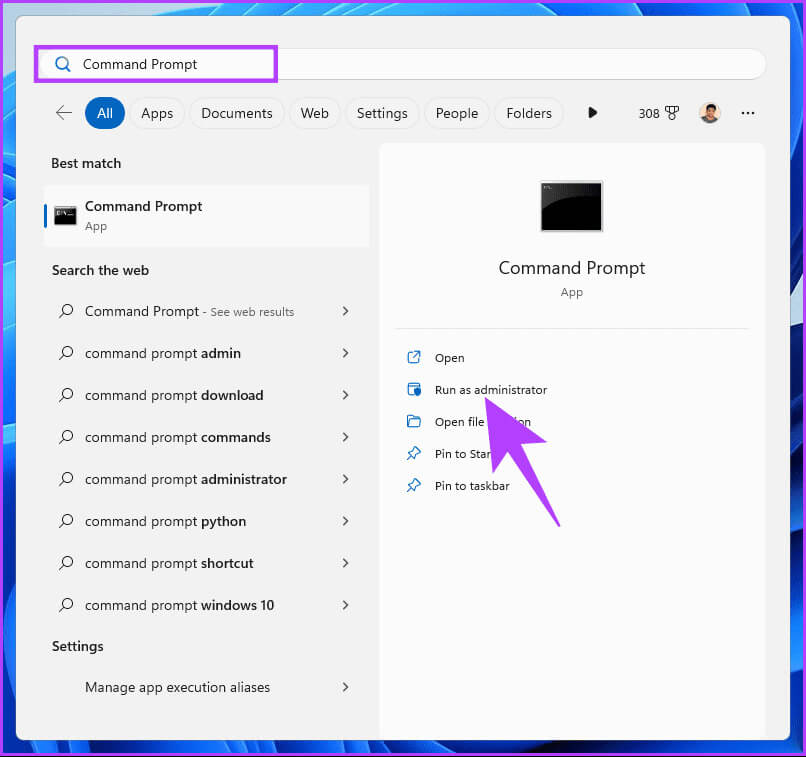
Step 2: If you are not sure which service name you want to delete, list all services in cmd. Type the following command.
sc queryex type=service state=all
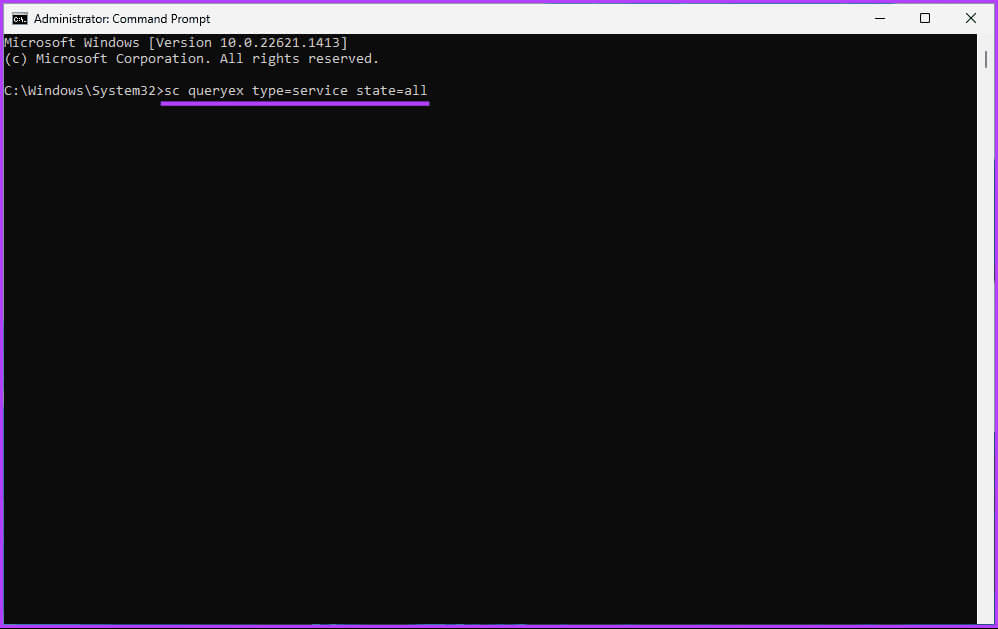
Step 3: to delete service, Enter the command below.
Note: Replace service name with the actual name of the service you want to remove.
sc delete name
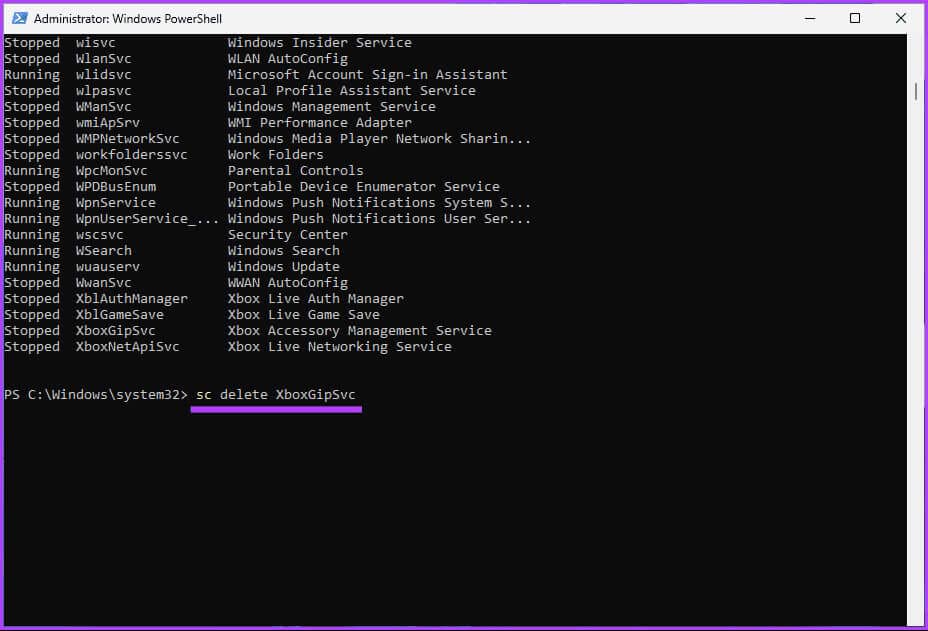
That's it. You'll see a success message if the deletion was successful. This way, you've removed a service from Windows.
Method 2: Using Windows PowerShell
Just like the Command Prompt, deleting a service from your Windows PC using PowerShell is easy. However, it's more convenient because it displays the names of all services installed on your Windows computer. Furthermore, the exact name of the service and the removal process are also at your fingertips. Follow the steps below.
Step 1: Click on Windows key On the keyboard, type Windows PowerShell, then tap "Run as administrator".
In the claim, select Yeah.
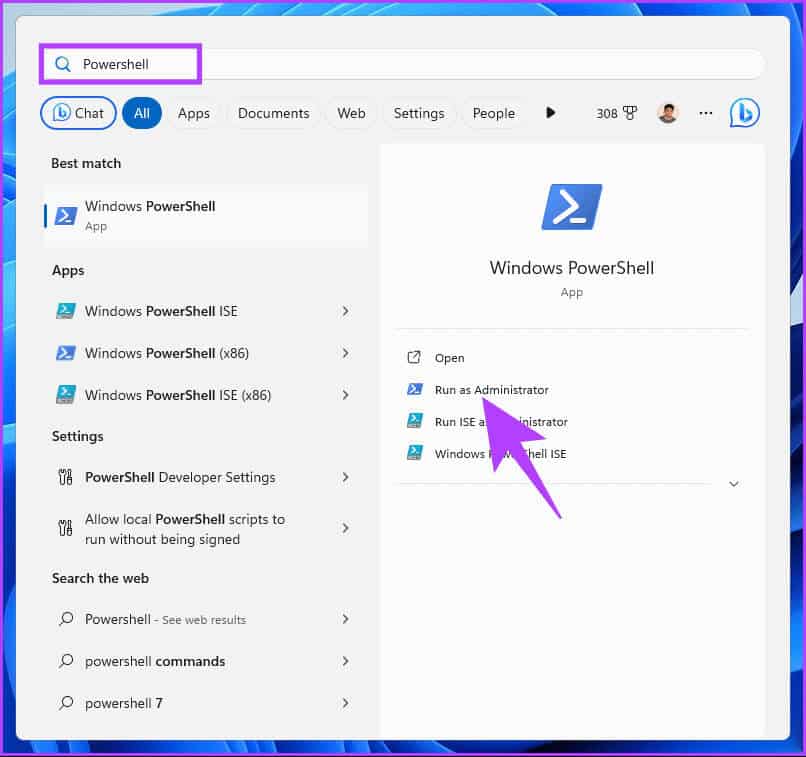
Step 2: Now, type the command below to display the menu: Services on your Windows system.
Get Service
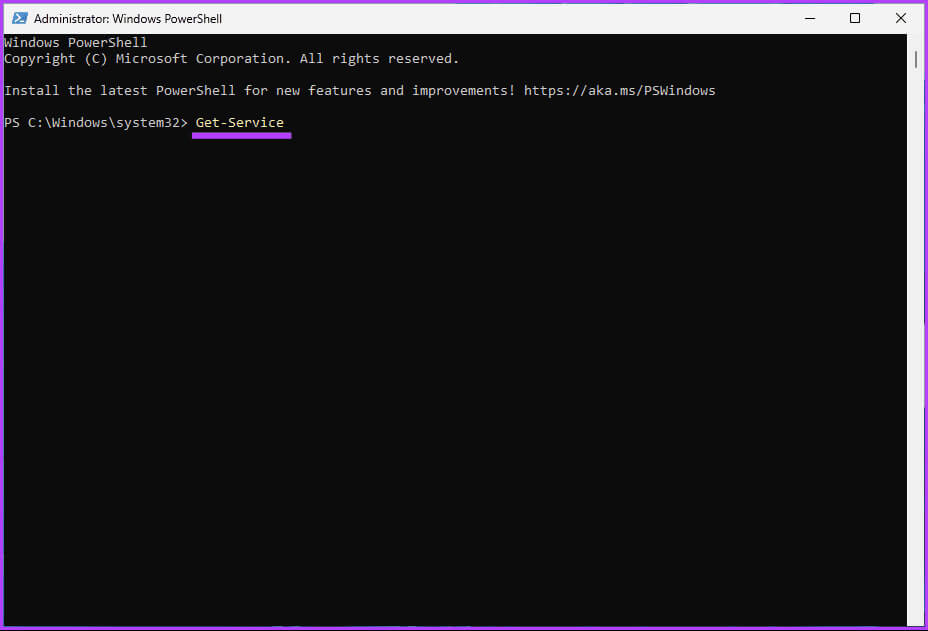
Step 3: To delete a specific service, type the command below and press Enter.
Note: Replace service name with the name of the service you want to delete.
sc delete servicename
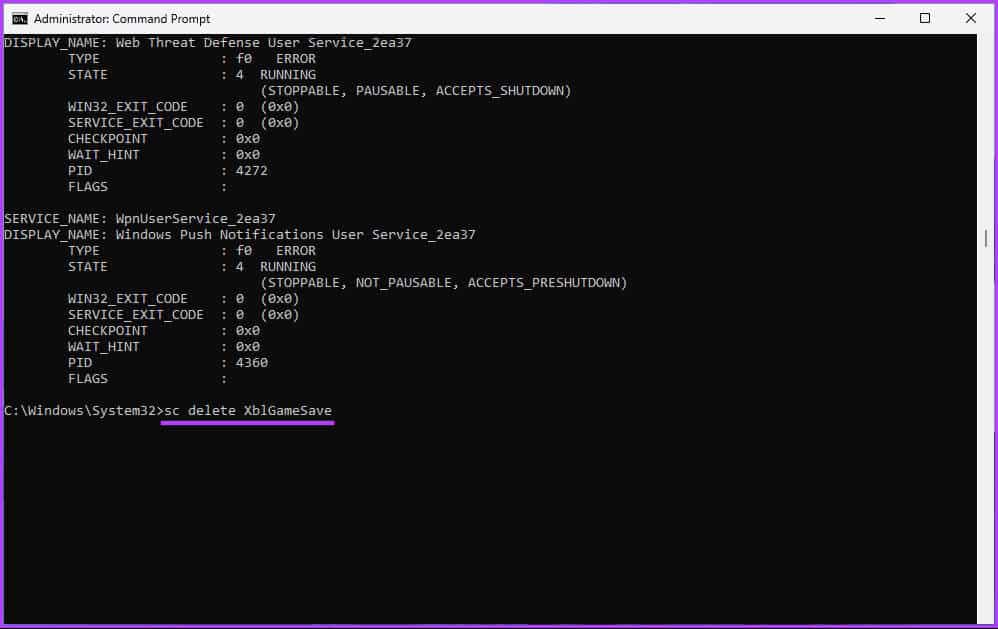
Method 3: Use the Windows Registry
This method is more complicated than the previous two, but the steps are easy to follow. However, since we'll be using the Registry Editor, we strongly recommend that you:Back up the Windows registry Before proceeding with the steps below.
Step 1: Open the menu "never", And type Registry Editor, and click "Run as administrator".
Note: Alternatively, press Windows key + R to open the Run dialog box, type regedit.exe, and then click OK toOpen Registry Editor.
In the claim, select Yeah.
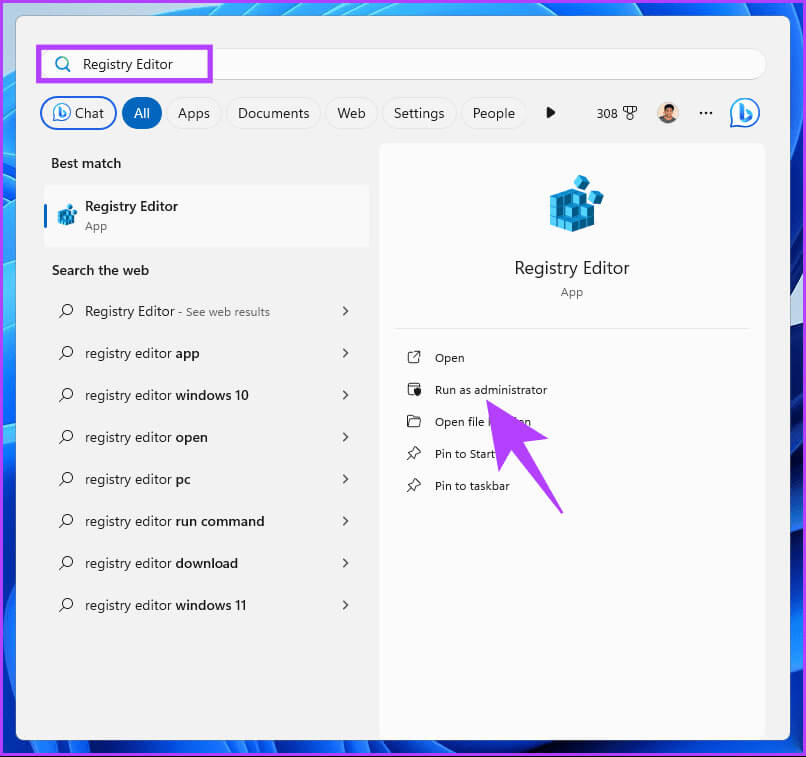
Step 2: In the top address bar, enter The address mentioned.
HKEY_LOCAL_MACHINE\SYSTEM\CurrentControlSet\Services
Note: You can manually navigate to the section as well.
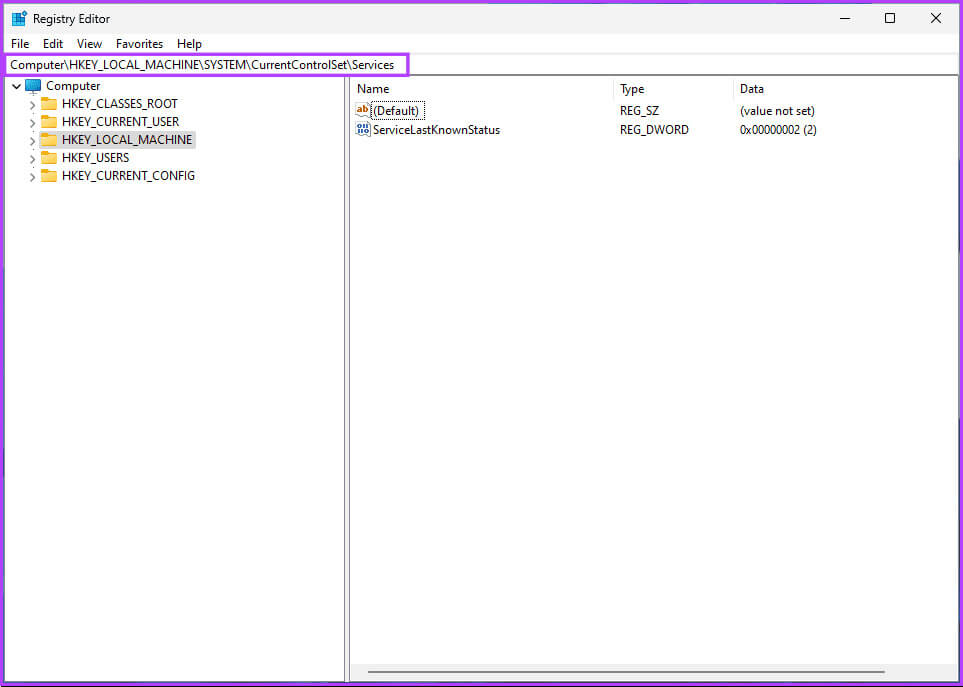
This guide contains keys for all the services on your computer.
Step 3: Right-click the key you want to remove and select delete.
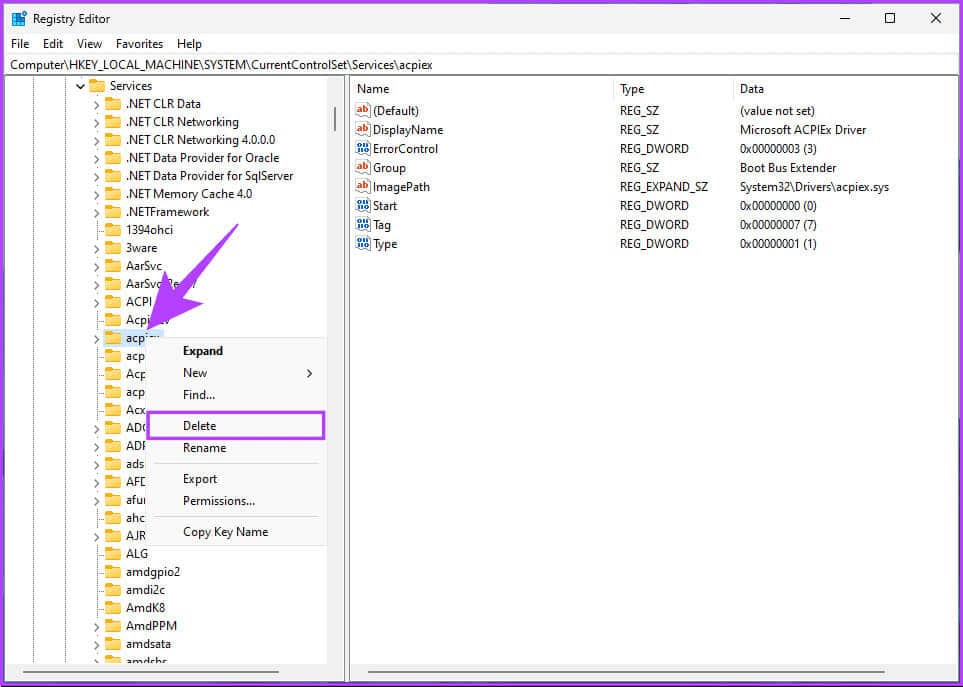
Step 4: In the pop-up confirmation window, click Yeah.

Finally, reboot your system to implement the changes. That's it! The selected service will be removed from Windows when your system boots back up.
If you don't want to remove a service from the registry, go to Autoruns; check the next method.
Method 4: Using Autoruns
Autoruns is a powerful tool that allows you to view and manage the programs and services that automatically start when Windows starts. Autoruns can help identify and remove malicious or unwanted programs that may slow down your system, compromise security, or interfere with normal operations. Follow the instructions below.
Step 1: Download the Autoruns From the site Microsoft Official website and extract the zip file to a folder of your choice.
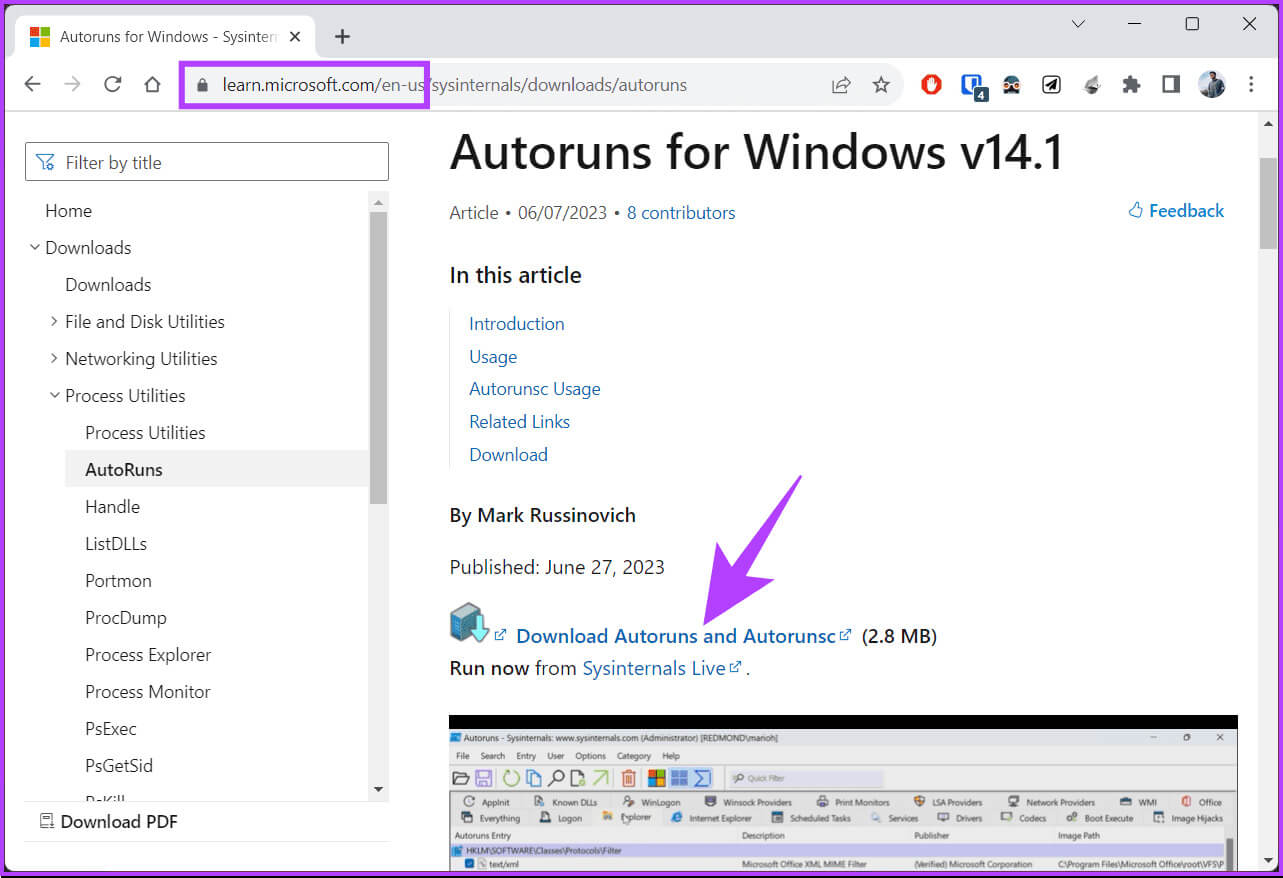
Step 2: Unzip the file. Select and run. autoruns.exe As an administrator. In the prompt, select Yeah.
Wait for Autoruns to scan your system and display the list of Autorun entries.
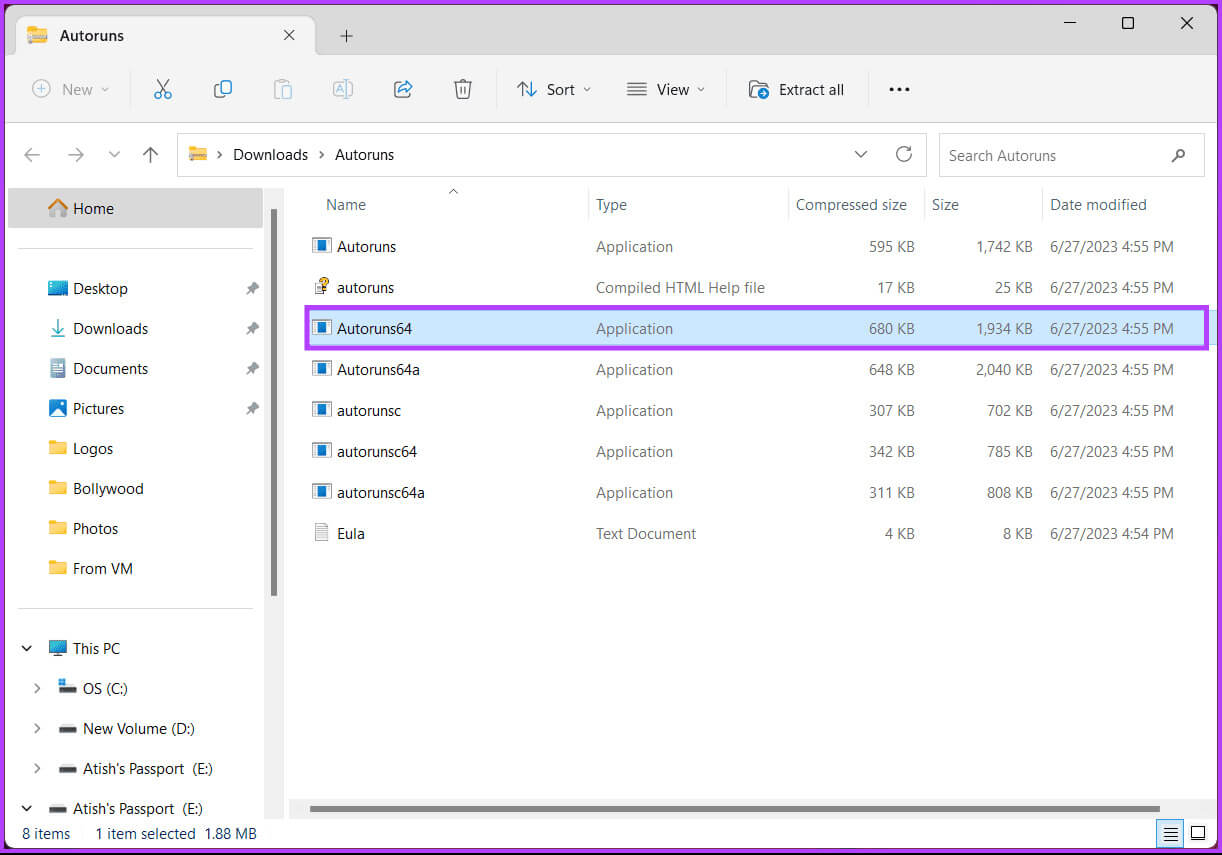
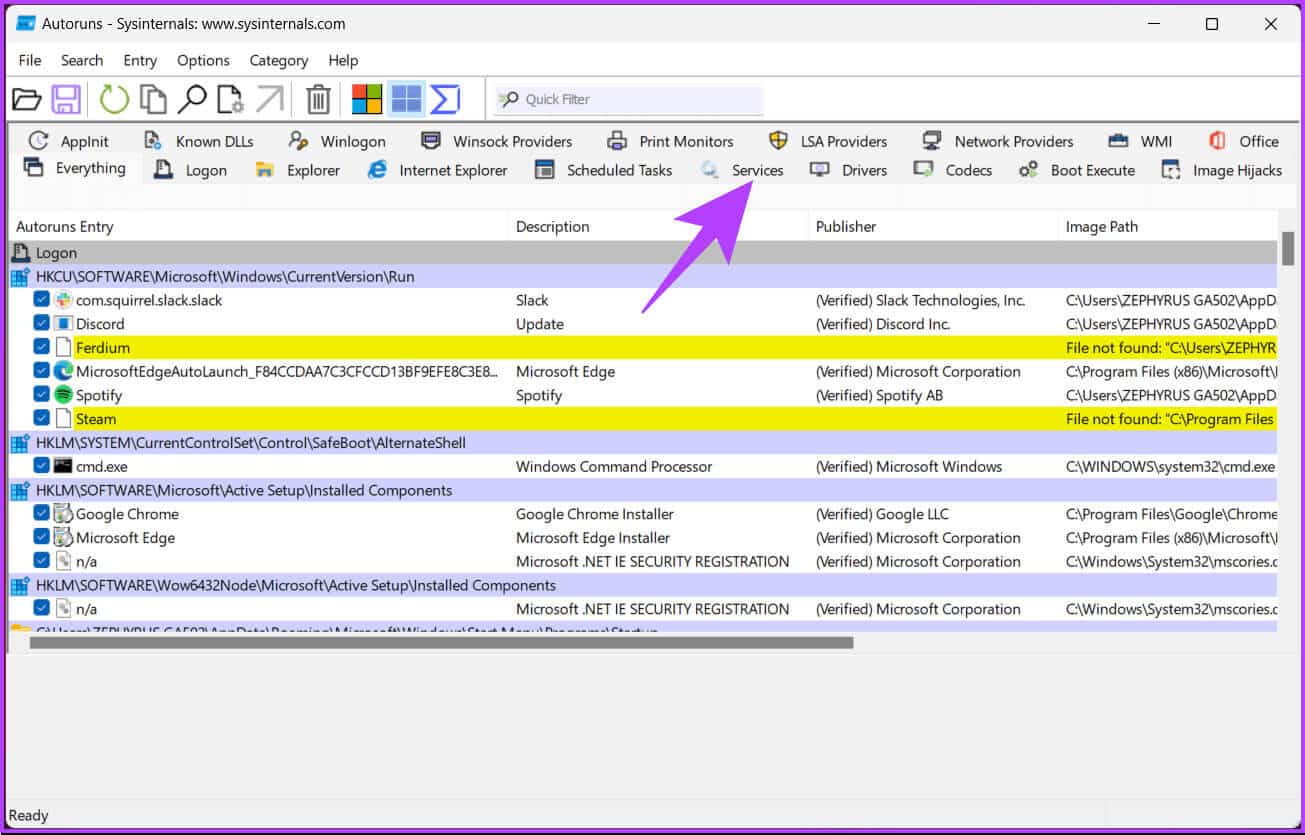
Under the tab “Services”, You will see all services registered on your device.
Note: Autoruns also tells you if the service publisher is verified, helping you easily find legitimate third-party services.
Step 4: Once you find the service you want to remove, right-click on it and choose delete from the list.
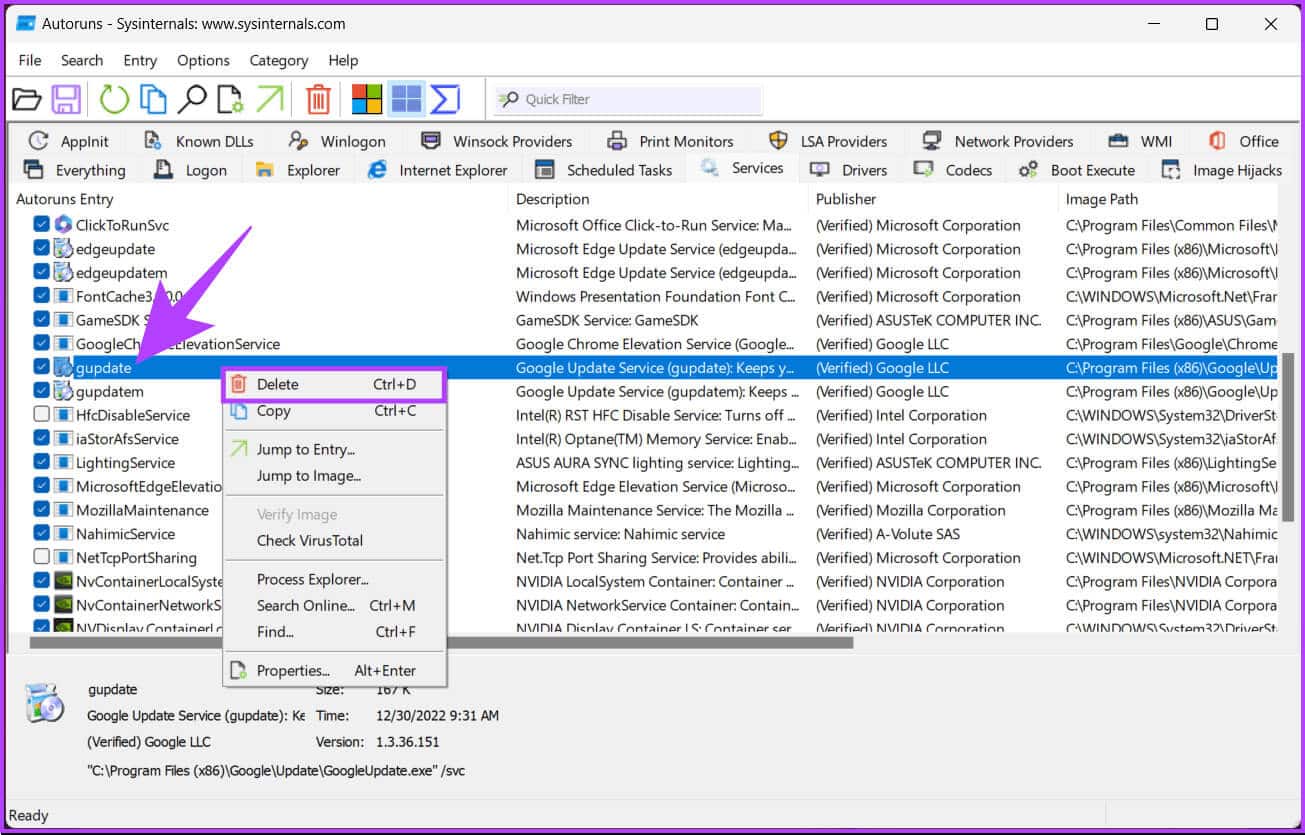
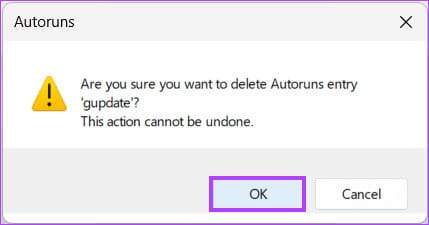
You have successfully removed a service from Windows using AutoPlay. You can use AutoPlay again to verify that the service is no longer running or listed in the AutoPlay entries.
common questions:
Q1. What is the difference between disabling and removing a service?
The answer: When you disable a service, it won't start automatically when you turn it on or when called by another service or program. The service remains stopped whether you try to start it or not. Instead, removing the service effectively uninstalls it from your system. Under Computer Management > Services, the service files are removed and are no longer listed.
Q2. Can I reinstall a service I removed?
The answer: Yes and no. If you back up the service or its associated file, you can reinstall the service you removed from Windows. However, you cannot reinstall the service if you do not have a backup.
Q3. Do I need administrative privileges to remove the service?
The answer: Removing a service in Windows is a system administration task that requires administrative privileges. Therefore, you cannot remove a service if you are logged in as a standard user or a guest.
Free Windows
In this article, we've shown you four ways to remove a service from Windows. Depending on your needs and preferences, choose any of these methods to remove a service, free up system resources, and improve your computer's performance. You may also want to read How to install Windows 11 on VirtualBox.


